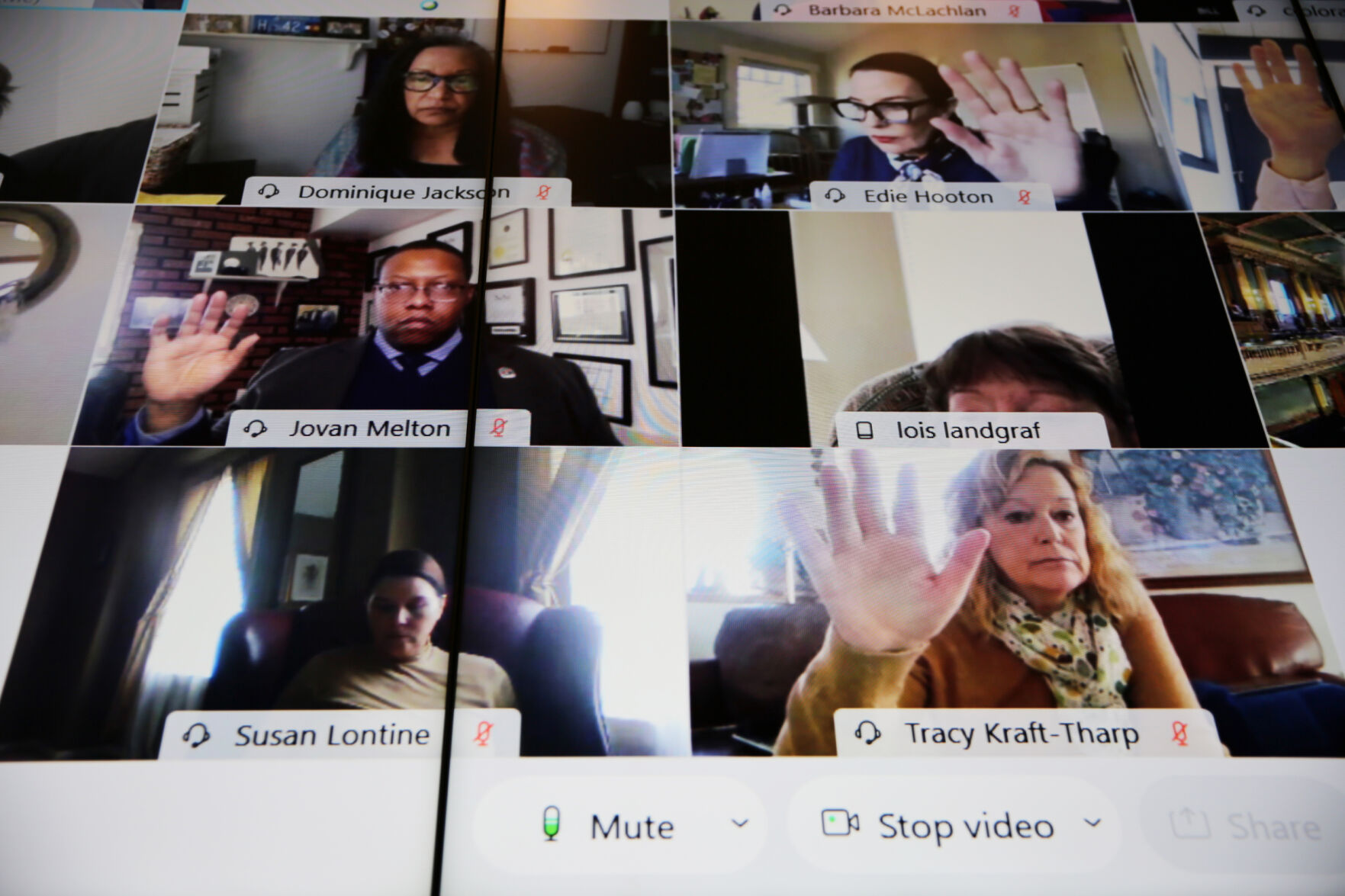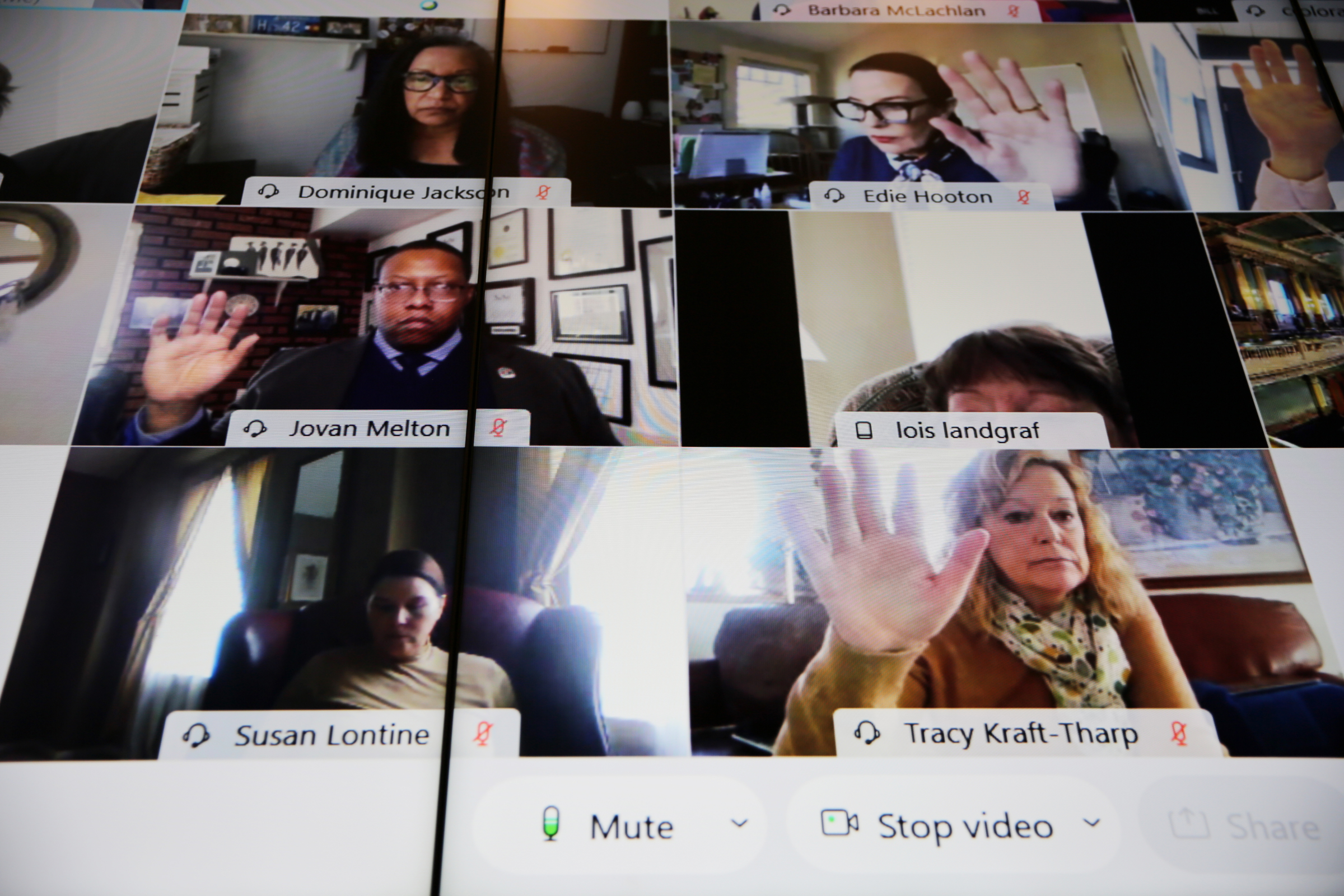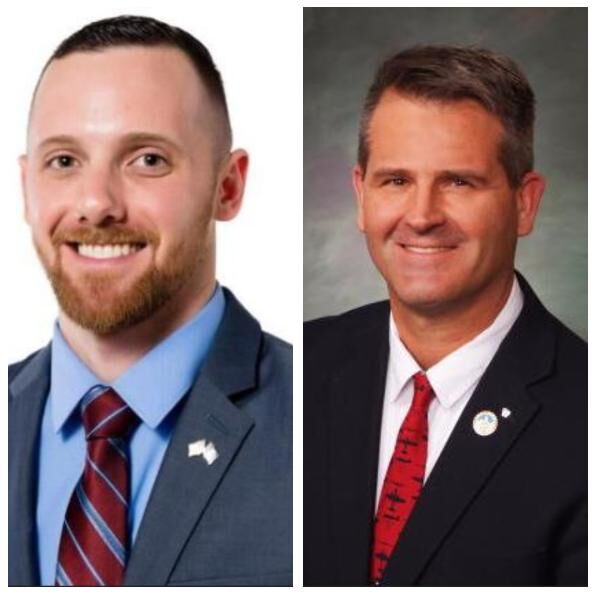General Assembly leaders end use of emergency rules tied to pandemic

The legislative leaders of the General Assembly unanimously voted Monday to end their use of a public health emergency declaration tied to the pandemic.
Joint Rule 44 concerns regulations for the House and Senate during a public health emergency. And while Gov. Jared Polis has not lifted the emergency declaration for the state, the legislature is ready to move on.
The General Assembly leaders invoked the rule on March 10, 2020. It allowed lawmakers to participate remotely from home (and other places, as it turned out) during the legislative sessions in 2020 and 2021. That won’t change with the decision to lift the emergency declaration, according to House Speaker Alec Garnett, a Denver Democrat, who said remote participation for interim committees during the summer and fall would still be allowed so long as the governor’s public health emergency declaration is still in effect.
Joint Rule 44 also allows the leadership to temporarily adjourn the House and Senate, as happened in both 2020 and 2021, until the public health emergency has abated or other steps have been taken to ensure the public health and safety of legislators and others at the Capitol. It also allowed leadership to prioritize legislation that would be dealt with in the session’s remaining days, which happened in June 2020.
Its most controversial provision, however, was that it would have allowed a reduced limit on the number of bills a lawmaker could offer, which was never invoked.
The executive committee also approved the first steps for setting up interim committees and task forces that will spend part of the state’s $3.8 billion allotment from the American Rescue Plan.
During the session, lawmakers approved several bills that would direct about $850 million of the federal dollars toward behavioral health and affordable housing, but the particulars will be left to an interim task force, which will come up with recommendations for the 2022 session.
The “Behavioral Health Recovery Act” creates a behavioral and mental health cash fund, with $550 million from the federal allotment. According to the fiscal note for SB 137, $114 million would go into existing behavioral and mental health programs. The bill also sets aside $50,000 for expenses for the task force and to hire a facilitator to work with a task force that will recommend how the funds will be spent.
An additional $200,000 for task force expenses, including a facilitator, is contained in HB 1329, which deals with affordable housing. That bill directs $550 million to the Affordable Housing and Home Ownership Cash Fund. The Department of Local Affairs would immediately get $98.5 million for its affordable housing assistance programs. An additional $1.5 million would go to the Judicial Department for eviction legal defense.
The two task forces can collaborate with each other, according to Legislative Council staffer Elizabeth Berger.
The General Assembly plans to post requests for bids for the facilitator on Tuesday, with responses due by July 18. The executive committee will then choose the facilitator by July 26.
The task forces, which are expected to include legislators, do not have the same authority that interim committees have, which is to draft legislation. That will be left to lawmakers for the 2022 session, based on the recommendations.
In a statement after Monday’s meeting, Garnett said “Colorado is creating a responsible, bipartisan process to allocate nearly $1 billion in federal funds for transformational changes that will make housing more affordable and improve our behavioral health system. We have this opportunity because our federal delegation and President Biden delivered critical relief for Colorado.”
House Majority Leader Daneya Esgar of Pueblo added that “for Colorado to build back stronger than before the pandemic, we need an equitable recovery where everyone has an opportunity to succeed. Creating more affordable places to live and improving access to behavioral health care will expand opportunity, improve the health of Coloradans and boost our economy.”
Legislative leaders will announce the appointments to the task forces by July 16 and they will begin meeting in August.













